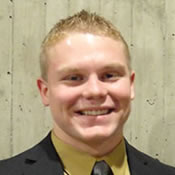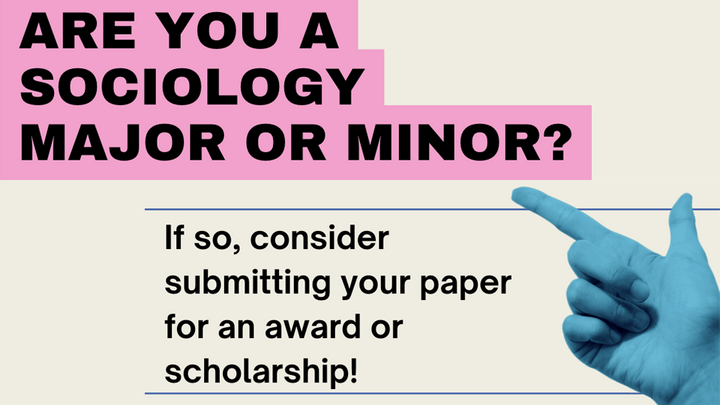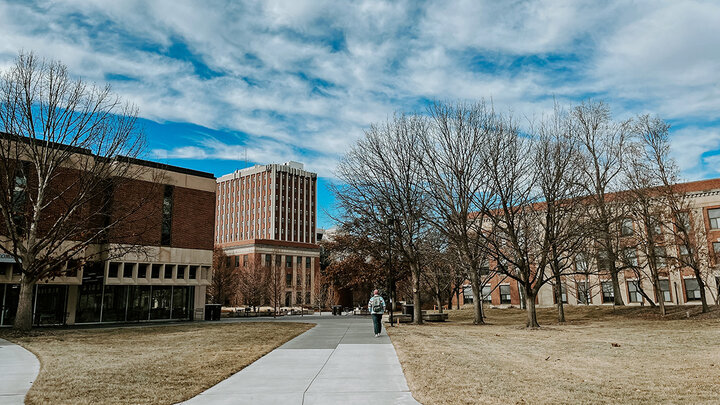
Before graduating from UNL in spring 2015 Michael Killingsworth was a triple major in sociology, psychology, and political science. As an undergraduate Michael aspired to enter law school after graduation. In addition, he was involved in research that improved his understanding of the relationships between media, society, and law. His research helped him become the 2015 recipient of the Alan P. Bates Outstanding Undergraduate Award.
The award provides one UNL sociology major with a $1000 award every year, along with honoring the student’s name on a plaque with past recipients. To be considered for the Alan P. Bates Award, students must submit their transcript, cover-letter, and resume to the UNL Department of Sociology. Students must also provide the Department with a sample of their own writing to demonstrate their promise in the field of sociology.
Michael submitted his senior thesis as his writing sample. He worked on his research project from the end of his sophomore year through his senior year. With his advisor, associate professor of sociology Dr. Lisa Kort-Butler, Michael analyzed how academics discussed the relationship between media and crime, and compared what he found to public discussions of media and crime.
According to Michael, academics have been writing about media-crime relationships since the nineteenth century. Over the course of more than a century, the trends in how media and crime are related have changed considerably.
“From the 1950s through the 1970s academics focused primarily on the links between crime and reading comic books,” Michael said. “Some authors during this time period denied any link, and some said there was a link. At the same time, some authors presented both sides of the issue while other authors didn’t.”
Michael also wrote about public outcry against certain musical genres, such as hip-hop and heavy metal, in the 1980s.
“The public outcry against music was surprisingly short compared to the other trends I analyzed,” Michael said. According to Michael, this short-lived controversy may have been ended by the introduction of the Parental Advisory label.
Now with the public’s increasing concerns over mass shootings, discussions about media-violence relationships focuses mostly on video games. And similar to the discussions surrounding comic books, television, and music in the past, researchers still haven’t reached a consensus on what role, if any, videogames play in influencing criminal behaviors.
With Dr. Kort-Butler, Michael has published the analyses and results of his research in an article which appears in the April issue of the Journal of Qualitative Criminal Justice and Criminology.
In addition to analyzing and coding textbook entries, Michael also conducted a 400-person web survey of UNL students to gauge their views on how different forms of media influence violence. His analysis compared people who described themselves as “gamers” to other game players and non-players, finding that gamers were less likely to think that the media leads people to become aggressive.
Now that he’s graduated, Michael will use the knowledge he has gained as a sociology student and researcher when he enters the University of Chicago Law School this year. Michael plans to specialize in business-corporate law.



